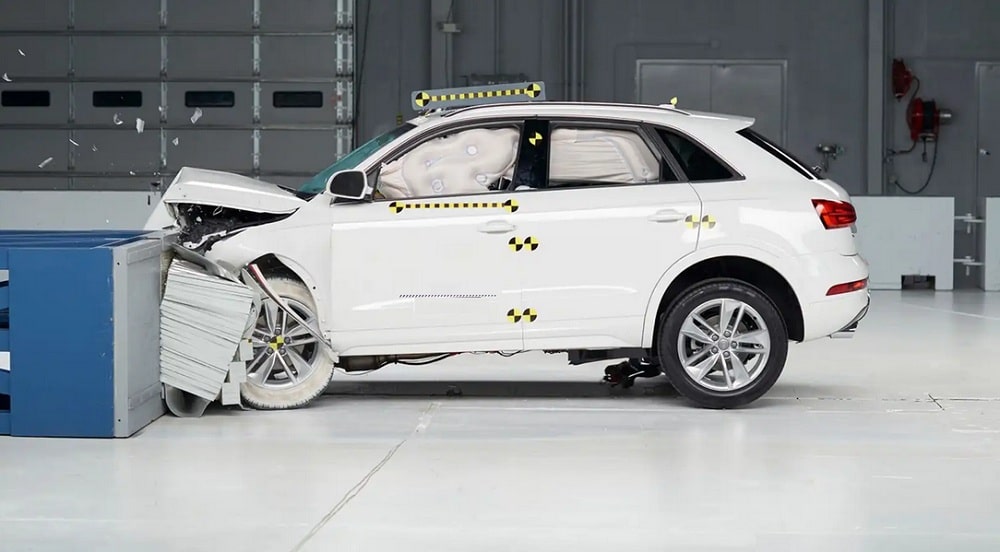We, the participants, exhibitors, speakers and organisers of the “Safety of Vehicle –Safety of Passenger” conference, held in Krakow on 11-12 April 2019, hereby adopt a common position, being the voice of reason of transport industry professionals.
During the two-day conference we discussed topics that focused on improving passenger safety. However, the word “passenger” does not carry the right meaning in emotional terms. Instead, we should say that it is about the safety of our children, wives and husbands, our parents, our families and our loved ones. Is the significance different now? Does it suddenly turn out that the problem exists? Will safety, which until now has been treated with too little attention by manufacturers, operators, regulators and ourselves, begin to matter?
We have asked ourselves a question why so much is being said about the safety of passenger cars and so little about buses and trams. The answer is clear. Buses and trams are among the safest modes of transport. The number of people who die in bus accidents is insignificant in statistical terms as compared to the number car accident fatalities. The number of buses produced annually is a per mille of passenger car production. Then why bother? Such statistics and thinking can only get you killed. We have decided to change that approach, and we want to initiate the action. This is the reason for creating this document.
During the conference, we defined the problems that need to be solved in order to make the travelling safe. The biggest problem does not lie in technical or technological limitations. Those can be overcome. The greatest danger is the lack of public awareness and knowledge about the consequences of making wrong decisions concerning the choice of means of transport for oneself, one’s students or subordinates, children and family.
The disaster in Madeira in mid-April cost the lives of 29 people and left many injured. According to preliminary reports, the brakes failed. However, we should pay particular attention to the fact that all passengers who were wearing seat belts survived on that day and those who died were the ones who did not fasten their seat belts. The disaster in Madeira was a tragedy for families and hundreds of people who are privately associated with these 29 victims. Will the friends of the victims fasten their seat belts on their next bus trip?
Do your children or grandchildren fasten their seat belts on the bus? Would anyone at schools, universities, workplaces, in commune, city and regional offices say that these 29 people would probably survive the accident if only they fastened their seat belts? Will anyone take responsibility for that? We have a strong conviction that it is not going to happen.
Certainly, everyone will soon forget about this meaningful disaster and they will not remember to put their seat belts on during the next trip. We therefore call on all those responsible for the schooling of our children to support safety education. On our part, we will make every effort to jointly develop a training plan, actions and tools to promote the awareness of the problem.
We would like to appeal to parents and guardians to pay special attention to the safety of vehicles transporting their children and charges. It is not a proper argument that a journey to a swimming pool, for example, takes only a few kilometers and safety is not something to be concerned about. As parents, we wish for our children the best possible life in every aspect, however, we do not pay proper attention to how they travel and what they vehicles they are carried in.
It is often the case that those responsible for organising transport do not know the regulations and choose a company to transport children only by reason of the lowest price. They have no regard for the vehicle’s technical condition, year, condition of seats, seat belts or their absence; the only thing that counts is the price. Later, during the funeral mass, nobody thinks about it. We forget that we had not reacted before the accident, although we could have changed the course of events. We must remember that we ourselves contribute to such situations and must take full responsibility for them.
Another defined problem emphasized by the manufacturers of minibuses is the possibility in some countries of registering new vehicles on the basis of the decisions of diagnostic technicians. Manufacturers are subject to stringent approval regulations, procedures, quality and environmental standards that ensure adequate standards and, at the same time, affect passenger safety. However, as it happens the regulations in force allow the registration of minibuses solely on the basis of a signature and stamp of a diagnostic technician who focus on GVWR (gross vehicle weight rating) only.
Diagnostic technicians do not take into account the provisions that guarantee, among other things, the correct seat spacing, additional door in minibuses with more than 22 seats and other safety provisions. They also fail to take into account the guidelines of base vehicle manufacturers with regard to design changes and interference with the vehicle body by agreeing to its excessive extension. What does it mean? On the roads, thousands of minibuses carry our children, families, friends, risking their health and even their lives.
During the conference, we discussed a number of problems relating to the safety of travelers, but also, what is very significant, we presented ready-made solutions. As representatives of the industry, we have shown that safety is very important to us. We know how to save the lives of our children and our loved ones. We must share this knowledge, otherwise we will have to blame ourselves for not having spoken at the right time when another accident happens.
We’re screaming for our voice to be heard; Our appeal is addressed to the whole world, to all national and local authorities. We are calling on the governments, university lecturers, teachers, doctors, drivers, managers, police officers, rescuers, TV, radio, press, web portals, insurance companies and individuals of all professions to join our voice so that we can take common action to protect our children, families and friends.
We are calling on the European Commission, the European Council and the European Parliament, the United Nations, the International Association of Public Transport (UITP) and other organisations representing those involved in transport. We are calling on the manufacturers of buses, trams, seats, safety systems, equipment and accessories.
We need your support in improving bus and tram transport safety. We are calling on you to make our voice heard, to start the road to improving safety from the bottom up, develop standards, prepare agreements and take action! We are at your full disposal. Only joint action can bring about a change in the approach to education, changes in international laws and international regulations, which in the end will save many lives.


































